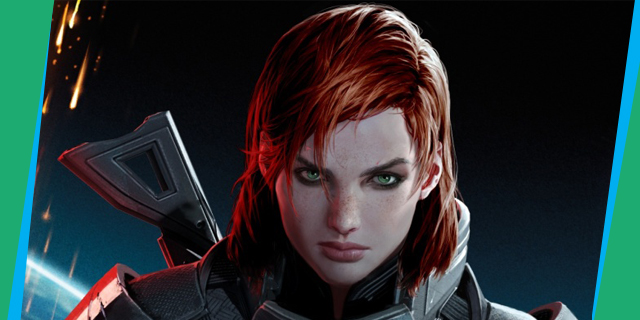
This week, a multitude of gamers are finishing the fight in Mass Effect 3: cavorting with aliens, punching mouthy reporters, and trying their damndest to protect the galaxy. This is his (or her) story, but it is also ours. We may not voice Shepard, but we do make decisions for him. We can even define how Shepard looks. Character creation has allowed gamers to become more intimate with the characters they are playing, but it isn’t always executed flawlessly. There are limits to what can be done in a video game, but those boundaries are constantly widening.
The idea of character creation is anything but new. Gamers have been designing their own tabletop versions of Darth Vader or Gandalf for almost half a century now. Often times the only limits placed on these characters are matters of skill. The sky is the limit in terms of a character’s aesthetic design: it all depends on how imaginative you are willing to be. My green goblin thief that looks and acts like Michael Jackson may have limits to his strength, but his journey is only dictated by game rules and my own creativity.

Well that’s great, but what about video games?
Video games, on the other hand, tend to follow a stricter format, due to the fact that player avatars need to be programmed onto a disc or cartridge. The Dungeons & Dragons series still follows the same ideas set forth in the tabletop versions of the game, but outside of your character’s portrait, your character is going to have to play by the developer’s rules and visual standards.
As the RPG genre has evolved, character customization has become more involved. Many MMOs, such as World of Warcraft or Final Fantasy XI, are a glorified version of older ideas. Many of the weapons and armors you pick up look nice, making your character stand out from the millions of others. Choosing character race brings flair to your character’s origins, but all things considered your destiny in these games is bound for the same end. It’s just a matter of how you get there.

Character creation is not exclusive to RPGs though. EA Sports has been integrating character creation into their releases for over a decade now. The story elements are admittedly weaker here, but it is certainly more exciting leading your own character through the PGA Tour than it is controlling Tiger Woods or any other professional golfer.
Fighting games have also dabbled in character creation. The Soul Calibur series has integrated a character creation system into their last three efforts. The biggest flaw with their system is that, outside of physical appearance, they are shackled to a pre-existing fighting style and a small selection of attitudes. While this wouldn’t be a problem in other games where your only choice is character selection, in Soul Calibur there are series staples such as Raphael or Nightmare that ooze way more style and personality than your crappy version of The Hulk.

Then there are the games where the experience is standardized for everyone and character creation is simply a nice gesture. LittleBigPlanet has fantastic character creation tools (and fantastic creation tools in general), but the Sackboys and Sackgirls all play the same. Without the ability to edit your Sackboy, though, the games’ appeal would have been a little more limited. The same is true with the Rock Band series: without a distinct visual to look at, the game is simply music and button presses. As consumers we tend to gravitate towards that which is visually appealing, and with character creation tools, we are given the reins to that aspect of the games’ design. BioWare has known this for a long time.
Taking the next step
BioWare’s Mass Effect series is a shining example of how to give players character creation tools and then give their avatar an involving purpose. Sure, Star Wars: Knights of the Old Republic and Jade Empire also had this distinction, but Mass Effect was the first to carry over choices from the previous games in the series. You built your own continuity within a expertly-crafted story, forged your own relationships and fought your own battles. Shepard has a preset personality, but you almost always have a choice in what they’ll say. In this way, they can keep the player’s story interesting without treading all over the fact that they let you create them. You become a lot more attached to a character if their personality is vivid. I see it as an evolution of the silent protagonist role that many RPGs in the past have used.

Other games, like the recently released The Elder Scrolls V: Skyrim, allow players to go anywhere, much like an MMO but with more attention spent on the world around the player. You can pilfer chests, attack townsfolk (or save them) and become a werewolf if you choose to. This non-linear progression helps aid the idea that you are free to forge your own path, and as a single-player game, your choices are a lot more permanent than they would be in an MMO. Bethesda games are a lot closer to that tabletop gaming feel than other video games in that respect.
Character creation really has nowhere to go but up at this point. Companies simply need to focus more on designing the other aspects of their game around it. After all, what good is a story with no strong characters, and what good is a character without interesting strengths and personality? No one wants to be just another face in the crowd.



















